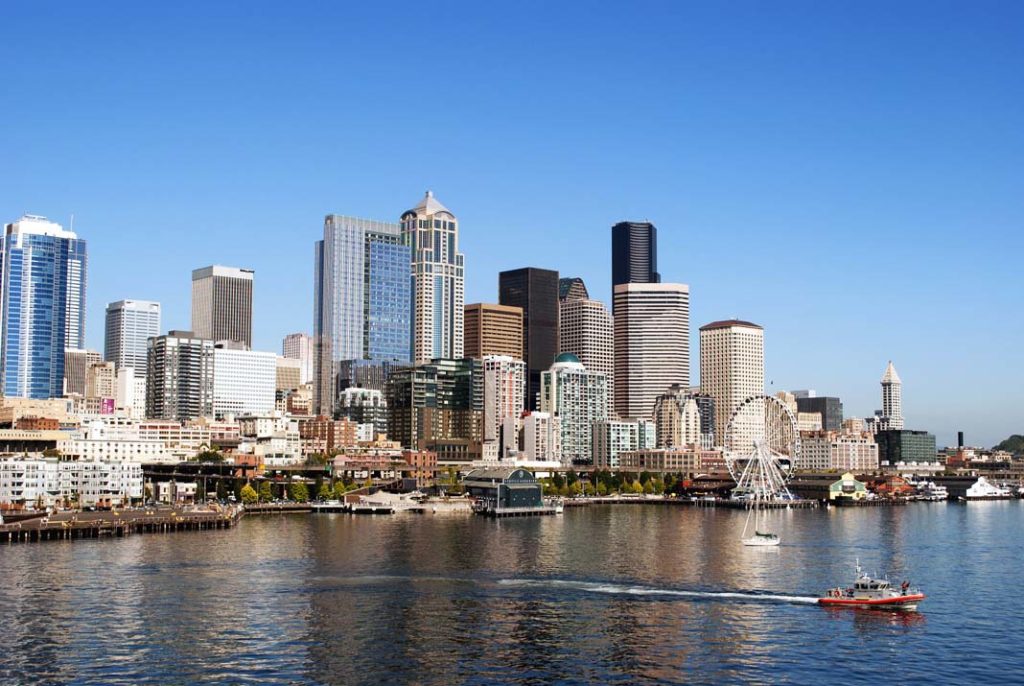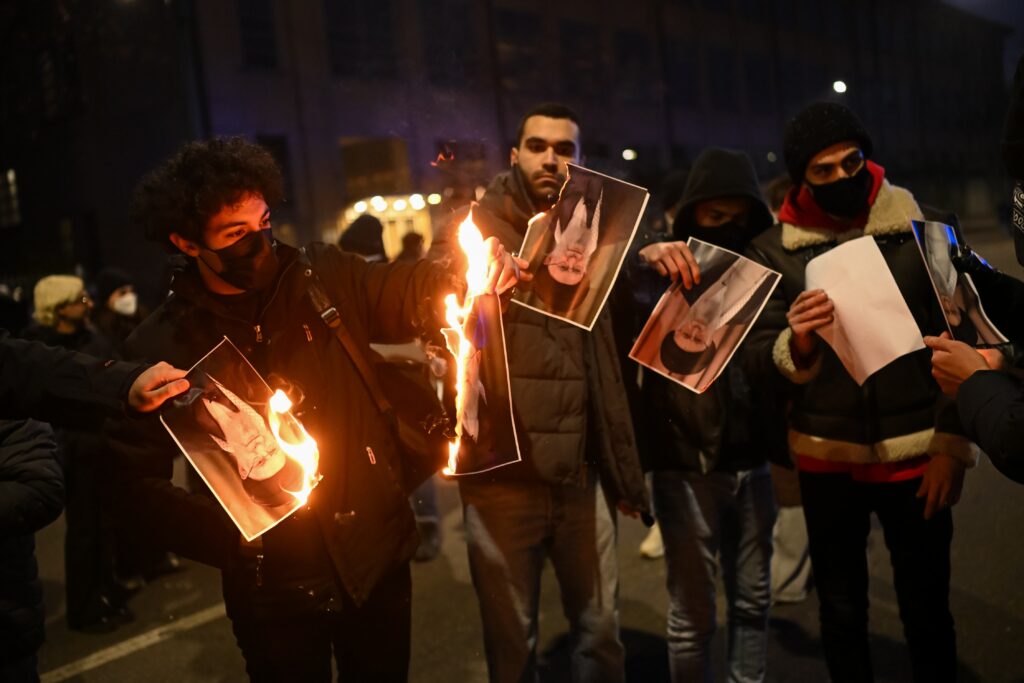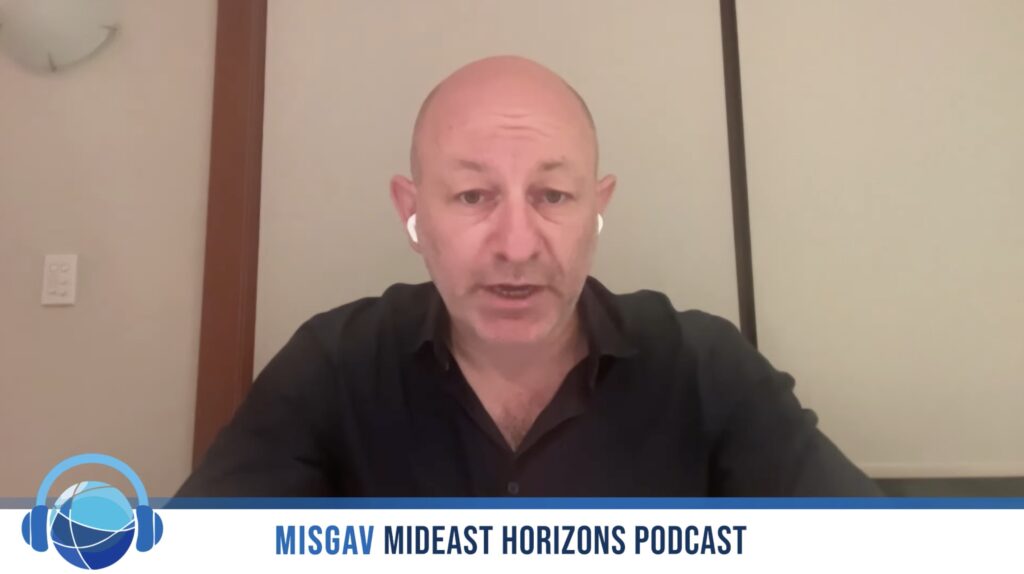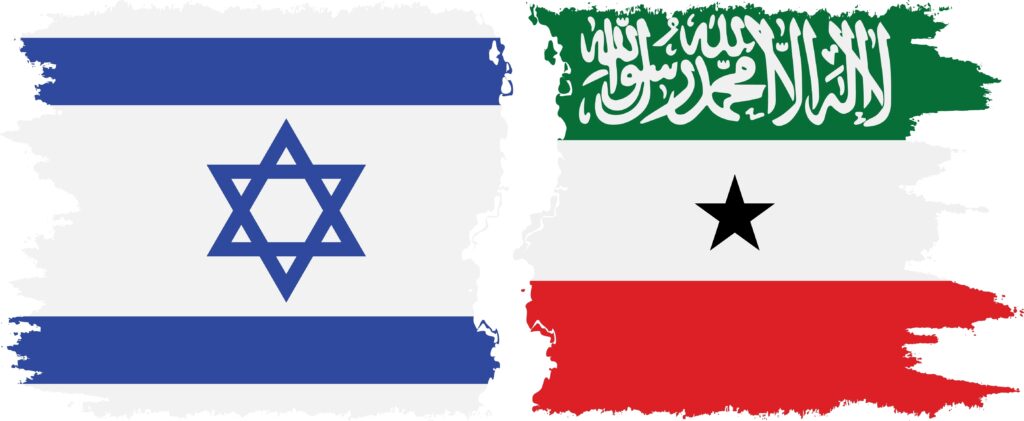UPDATES
Three “noes” from Abbas?
March 28, 2014

Update from AIJAC
March 28, 2013
Number 03/14 #05
Palestinian Authority (PA) President Mahmoud Abbas met US President Obama last week. The meeting, which one Palestinian negotiator described as “difficult”, received relatively low-key coverage at the time, but later Israeli coverage, based on US Administation sources, suggests that Abbas was particularly negative and rejected three key elements of the US Secretary of State John Kerry’s “framework agreement” for peace. Yesterday, Kerry met with Abbas in Amman to try to narrow the gaps, as the US scrambles to try to find a way to keep the talks alive after their scheduled end date in late April, with the PA placing new conditions on any such continuation. This Update looks at the state of play in the peace process in the wake of Abbas’ apparent “three noes” in Washington.
First up is a report from the Times of Israel, summarising Israeli media reports on what Abbas told Obama. Less surprisingly, Abbas renewed his refusal to recognise Israel as a Jewish homeland and refusal to compromise on the claimed Palestinian right of return – but in what was apparently a new departure, he also reportedly refused to accept that a two-state peace deal would mean an end to the Israeli-Palestinian conflict and to further Palestinian claims against Israel. He then returned to Ramallah to declare before a public rally that he would never “capitulate” and added “be assured that we will be victorious. We will keep secure what you have entrusted us with.” For all the details, CLICK HERE. More analysis of the reported “three noes” comes from Jonathan Tobin of Commentary.
Next up, Palestinian Affairs reporter Khaled Abu Toameh discusses the hero’s welcome that Abbas orchestrated for himself on his return to Ramallah to thank him for defying Obama and Israeli demands. Abu Toameh reports that the rallies were actually orchestrated by the PA using mostly government employees and school children, and were in part an effort to cope with increasing divisions within his own Fatah movement – with a bitter fight developing between Abbas and his partisans and those of former military commander Mohamed Dahlan. Abu Toameh argues that the divisions within Fatah, no less than the divisions between the Fatah-ruled West Bank and Hamas-ruled Gaza, make it impossible for Abbas to accept Kerry’s framework. For the rest of Abu Toameh’s always knowledgeable analysis of West Bank politics, CLICK HERE. More on what the meeting in Washington showed about the Palestinian divisions and their bottom line comes from Israeli columnist Dan Diker.
Finally, noted Palestinian politics expert and author Jonathan Schanzer, together with fellow scholar Grant Rumeley, explains in detail the Palestinian “plan B” if the current talks end or fall apart. As Palestinian leaders have repeatedly hinted, they see their next step as an all out effort to promote a plan called “Palestine 194” – seeking recognition of the existence of a Palestinian state in international bodies as a way to greatly increase international pressure on Israel. Schanzer and Rumley review the history of Palestinian efforts along this line over recent years, and note that this “diplomatic intifada” is likely to see the US caught in the crossfire, as it has been in the past, and that Washington will need to prepare policies to cope with this likelihood. For the rest of what they have to say, CLICK HERE.
Readers may also be interested in:
- A definitive discussion of Mahmoud Abbas’ refusal to recognise Israel as a Jewish homeland comes from Washington Institute head Dr. Robert Satloff. Plus, left-leaning Israeli columnist Ari Shavit demands that those in Israel and abroad who want to promote peace not cave into Palestinian intransigence on recognition, which he sees as the essence of peace.
- Detailed analysis of Abbas’ public statements on refugees and the “right of return” comes from Lt. Col. (ret.) Jonathan D. Halevi. More on the origins of the claimed Palestinian “right of return” comes from former American diplomat Amb. Richard Schifter.
- Former American Mideast mediator Aaron David Miller discusses some of the issues dividing the parties but predicts that in the end Abbas will agree to continue the talks after the deadline.
- Advice from American Jewish leader Rabbi Abraham Cooper on what Obama should be telling Abbas.
- Some comments on President Obama’s overall approach to Israeli-Palestinian peacemaking from Lee Smith.
- Israeli author and thinker Daniel Gordis has a brilliant piece on the importance on looking objectively at the realities of the Palestinian difficulties in agreeing to a peace deal, rather than refusing to accept that reality, as many appear to do, because it is too “depressing.”
- Also arguing that burying the truth on the Palestinian stance is unhelpful is Jonathan Tobin. Meanwhile, exploring some of that reality in both the current Israeli and Palestinian stances is Jackson Diehl of the Washington Post.
- More evidence, discussed here and here, of the incorrectness of the claim that Israel’s demand for recognition as a Jewish homeland is a new one, this time from former US Middle East mediator Dennis Ross.
- Noted academic sociologist Amitai Etzioni uses both his own personal history and wider statistics to show the wrongness of the old anti-Zionism claim that Zionist immigration inevitably involved displacing Palestinians. Interestingly, a piece of historical research has shown that even the antisemitic, pro-Nazi and genocidal Palestinian leader Haj Amin al-Husseini admitted that Zionist settlement in mandate Palestinian did not result in Palestinians losing their land.
- A Hamas leader says there is a religious obligation to “massacre” Jews in Israel. A Fatah leader made remarks not that different a couple of weeks ago, saying of the Jews, “Allah will gather them so that we can kill them.” Another Fatah leader repeated an old antisemitic conspiracy theory that Israel seeks to conquer the Middle East “from the Nile to the Euphrates.”
- A report that, after a couple years of estrangement, Iran is renewing large-scale transfers of financial support to Hamas. Meanwhile, another major tunnel into Israel from Gaza, presumably built by Hamas to facilitate terrorism, was discovered last week.
- Mideast Scholar Prof. Martin Kramer looks back on the partnership between Begin and Sadat that led to the Israeli-Egypt peace treaty, signed 35 years ago this week.
- American foreign policy pundit Michael Doran has more on how the Kremlin’s successful aggression in the Crimea is likely to affect the Middle East and especially the policy problem it presents for Washington.
- Tour Israel’s Knesset via Google maps.
- Isi Leibler writes about the increasing radicalisation of the Israeli ultra-Orthodox minority.
- Some examples from the many stories and comments now appearing at AIJAC’s daily “Fresh AIR” blog:
- AIJAC’s official statement on the Australian government’s “exposure draft” of proposed changes to section 18C, Australia’s racial hatred law. Plus, Daniel Meyerowitz-Katz offers detailed analysis of the wording of the proposal.
- Ahron Shapiro discusses a particularly ugly Palestinian propaganda lie about soccer players – which recently made it into Australian Federal Parliament.
- Or Avi-Guy looks at the rejectionism and hatred which is apparent in Palestinian rhetoric rejecting any recognition of Israel as a Jewish state or homeland.
TV report: Abbas said ‘no’ to Obama on 3 core peace issues
Rejecting Kerry framework, Palestinian leader reportedly told US president he won’t recognize ‘Jewish Israel,’ abandon ‘right of return,’ or commit to ‘end of conflict’
On his trip to Washington this week, Palestinian Authority President Mahmoud Abbas rejected US Secretary of State John Kerry’s framework document for continued peace talks with Israel, and issued “three no’s” on core issues, leaving the negotiations heading for an explosive collapse, an Israeli TV report said Friday.
Abbas “went to the White House and said ‘no’ to Obama,” Channel 2 news reported, quoting unnamed American and Israeli sources.
Specifically, the report said, Abbas rejected Prime Minister Benjamin Netanyahu’s demand that he recognize Israel as a Jewish state. He also refused to abandon the Palestinian demand for a “right of return” for millions of Palestinians and their descendants — a demand that, if implemented, would drastically alter Israel’s demographic balance and which no conceivable Israeli government would accept. And finally, he refused to commit to an “end of conflict,” under which a peace deal would represent the termination of any further Palestinian demands of Israel.
Israel has indicated that it may not release a fourth and final group of Palestinian prisoners at the end of this month, as agreed to when the current talks began last July, if Abbas does not first agree to extend the talks beyond their scheduled cessation next month. Since Abbas rejected the Kerry framework for extending the talks, the TV report said, the negotiations were now heading for an “explosion.”
Abbas returned on Thursday from the US, having held talks with Obama on Monday, and was met at his Ramallah compound by hundreds of cheering supporters.
“We carried the deposit, and we are guarding the deposit,” Abbas told those supporters somewhat cryptically. “You know all the conditions and circumstances, and I say to you that capitulating is not a possibility.” Abbas did not specify what he meant by the “deposit.”
During Monday’s meeting in Washington, Obama told Abbas that he would have to make tough political decisions and take “risks” for peace, as would Netanyahu. Abbas, for his part, reiterated his rejection of Israel’s demand that its status as a Jewish state be enshrined in a future peace accord, asserting that previous Palestinian recognition of Israel was sufficient.
“Everyone understands the outlines of what a peace deal would look like,” Obama said, describing an agreement that reflected the pre-1967 lines with agreed land swaps.
Sitting next to the president, Abbas spoke through a translator, thanking Obama for the opportunity to come to the White House and for the “economic and political support the US is extending to the Palestinian state so it can stand on its own feet.”
He outlined the Palestinian positions for negotiations, including “working for a solution that is based on international legitimacy and also the borders — the 1967 borders — so that the Palestinians can have their own independent state with East Jerusalem as its capital and so that we can find a fair and lasting solution to the refugee problem.”
On Thursday, the Palestinian Foreign Ministry notified Abbas that it is prepared to apply for full membership in international institutions if Israel fails to complete the fourth and final release of Palestinian prisoners jailed before the signing of the Oslo Accords, scheduled for March 29.
Israel agreed to release 104 such prisoners in four stages over the nine-month negotiating period, in return for a Palestinian commitment not to apply for membership in international bodies.
A number of Israeli cabinet members, including Economy Minister Naftali Bennett and Deputy Defense Minister Danny Danon, have publicly opposed the final release, which the Palestinians want to include 14 Israeli citizens, something Israel has rejected.
Lazar Berman, Elhanan Miller, Rebecca Shimoni Stoil and AP contributed to this report.
Back to Top
————————————————————————
Abbas: I Am a Hero. I Said No to Obama
by Khaled Abu Toameh
March 21, 2014
If in the past Abbas was afraid of Hamas’s response to the signing of a peace deal with Israel, it is now clear that he also has good reason to fear the reaction of top Fatah officials to any movement he makes concerning the peace process.
Even before Palestinian Authority President Mahmoud Abbas left Washington on his way back to Ramallah, Palestinian Authority [PA] officials rushed to announce that their president’s talks with President Barack Obama over the future of the peace process were “unsuccessful.”
The officials said that Abbas rejected most of the proposals made by Obama during their meeting at the White House, including the idea of recognizing Israel as a Jewish state and maintaining an Israeli military presence in the Jordan Valley. Abbas, according to the officials, also dismissed as “immature” Obama’s proposal concerning the status of Jerusalem because it did not call for a full Israeli withdrawal from the eastern part of the city.
Abbas’s rejection of the U.S. proposals for a “framework agreement” with Israel did not come as surprise.
Over the past few months, Abbas and his top aides and negotiators have repeatedly voiced their strong opposition to these proposals, with some accusing the US Administration of endorsing the Israeli stance and failing to serve as a honest broker in the conflict.
Before heading to Washington, Abbas instructed the PA to organize public rallies in the West Bank in his support.
PA employees and schoolchildren were sent into the streets to chant slogans in support of Abbas, urging him not to succumb to U.S. pressure. The rallies were intended to send a message to President Obama and Secretary of State John Kerry that the Palestinian public is strongly opposed to any concessions to Israel.
Upon Abbas’ return to Ramalllah, the Palestinian Authority once again organized rallies in support of him. On March 20 hundreds of PA employees and schoolchildren were sent to welcome Abbas at his presidential office and thank him for resisting U.S. pressure.
Bassam Zakarneh, chairman of the Palestinian Public Employees’ Union, said that the rallies were aimed at thanking Abbas for resisting “pressure and conspiracies and upholding Palestinian rights.”
The pro-Abbas rallies have drawn criticism from some Palestinians, who said they seemed reminiscent of demonstrations organized by dictators and their security agencies throughout the Arab world.
“These rallies are not real,” complained West Bank university professor Abdel Sattar Qassem. “They are similar to what Arab intelligence agencies have been doing — using blackmail and intimidation to force their public servants to show loyalty for the ruler.”
Abbas is now hoping to turn himself into a hero by telling his people that he had the guts to say no to Obama and Kerry during his visit to Washington.
Abbas is badly in need of public support, especially in light of increased tensions inside his ruling Fatah faction. In the past few days, these tensions have erupted into an all-out confrontation between Abbas and ousted Fatah Central Committee member Mohamed Dahlan.
Backed by some Gulf countries, Dahlan, a former commander of the PA security forces in the Gaza Strip, is now waging a public campaign to overthrow Abbas on charges of corruption and abuse of power. Abbas has retorted by accusing Dahlan of involvement in the death of Yasser Arafat and six Fatah leaders in the Gaza Strip.
“This is a disgraceful war between Abbas and Dahlan,” wrote Palestinian editor Abdel Bari Atwan. “We feel ashamed as we follow the exchange of allegations between the two men, who are accusing each other of theft, murder and collaboration with Israel. The Palestinians have become a joke in the eyes of many Arab brothers.”
Abbas’s rejection of the U.S. proposals is also attributed to the severe crisis within Fatah.
If in the past Abbas was afraid of Hamas’s response to the signing of a peace agreement with Israel, it is now clear that he also has good reason to fear the reaction of top Fatah officials to any move he makes concerning the peace process.
All Abbas can do for now is continue to ask his public servants and schoolchildren to take to the streets and chant slogans in his support. These rallies are intended to send a message not only to Obama and Kerry, but also to Abbas’s rivals in Fatah.
Back to Top
————————————————————————
Palestine’s Plan for when Peace Talks Fail
Despite the unshakable and quixotic optimism of John Kerry’s Middle East negotiating team, the prevailing prognosis in Jerusalem and Ramallah is that even an attempt to implement an interim Israeli-Palestinian peace framework—let alone a final status agreement—is doomed to fail.
If talks break down, observers including the New York Times’ Tom Friedman [4] suggest that Israel will come under massive international pressure for its continued building of settlements. But what Friedman and others don’t understand is that the Palestinians will lead the way. They have a plan ready and waiting.
Palestinian politics are rarely covered in the United States. Nor, for that matter, are they given a great deal of thought in the Middle Eastern press. But Palestinian insiders are now indicating that there is mounting pressure on Mahmoud Abbas and the Palestinian leadership to produce something, anything, to alter the status quo. Even now, while negotiations are in full swing, Abbas increasingly appears to be ‘the little Dutch boy’—as one Israeli reporter put it—struggling to rein in the demands coming from within his own party, Fatah. In light of these increasing demands and pressures, Abbas, who has led the Palestinian Authority well past his legal mandate (his term ended in 2009), is almost certainly set to renew the international campaign for recognition of Palestinian statehood. It’s a campaign known in Ramallah as the “Palestine 194” campaign.
This initiative had been in the works, with fits and starts, since 2005. That year, Abbas reportedly traveled to Brazil for a summit of South American and Arab states, and met privately with Brazil’s leftist president, Luiz Inácio Lula da Silva. There, da Silva supposedly told Abbas that when he neared the end of his second term (which expired on January 1, 2011), he would help build a Latin American consensus for a unilateral Palestinian statehood declaration at the UN.
Between 2009 and 2011, Abbas and Lula made good on their plan, recruiting scores of Latin American [5] and other non-aligned states to recognize the State of Palestine. The campaign also included European states such as France, Spain, Portugal and Norway. In 2010, at an Arab League meeting in Sirte, Abbas made one of his first references to the “Palestine 194 [6]” campaign. The name said it all: there are currently 193 member-states in the United Nations, and the Palestinians were unambiguous about their desire to become the 194th.
The international community was similarly unambiguous about its support for the campaign. By the end of 2010, almost one hundred countries had already recognized an independent Palestine. The effort to garner widespread international support was, to say the least, a new and evolved one. The Israelis tried to dissuade some friendly states from supporting the campaign, but the Palestinians clearly had the upper hand.
“Ladies and Gentlemen,” Mahmoud Abbas told the UN General Assembly [7] on September 23, 2011, “…I submitted, in my capacity as the President of the State of Palestine and Chairman of the Executive Committee of the Palestine Liberation Organization, to His Excellency Mr. Ban Ki-moon, Secretary-General of the United Nations, an application for the admission of Palestine on the basis of the 4 June 1967 borders, with Al-Quds Al-Sharif [Jerusalem] as its capital, as a full member of the United Nations.”
With that, Abbas made history. And while it can be argued that Arafat had already declared a Palestinian state in 1988, the Palestine 194 campaign felt distinctly different. The Palestinians had conceived, formulized, and implemented a concerted international policy, and it was, at least to this point, a diplomatic victory.
The only hitch, however, was that the U.S. was poised to veto their efforts at the Security Council.
Undeterred, Abbas brought the campaign home to overwhelming positive reception. As Al Jazeera reported [8], “A welcome party was planned at the Muqata, the presidential headquarters [in Ramallah], and a stage was set up next to the grave of the former president, Yasser Arafat.” The Palestinian government and schools closed early. Palestinians across the West Bank received text messages advertising “the official mass reception.” Palestine TV devoted its broadcast to Abbas, broadcasting photographs of the leader throughout the years as well as footage of him meeting ordinary Palestinians and international figures. For the Palestinians’ second president who has always been viewed as a rather bland and uncharismatic afterthought to Yasser Arafat, the reception was gratifying.
Abbas did not savor his victory for long, however. As expected, Palestine 194 was not well received in Washington. Led by efforts in the U.S. Congress, Washington withheld $200 million [9] in financial assistance as a warning to the Palestinians not to return to the UN.
However, the Palestinians were not prepared to accept defeat. With more than one hundred countries in support of the “State of Palestine,” the Palestinians had leverage. Abbas and his advisers immediately made a play for membership at the United Nations Educational, Scientific and Cultural Organization (UNESCO).
But this, too, came with consequences. According to a little-known American law [10] passed during the Clinton administration in the 1990s, the U.S. is prohibited from giving funds to any part of the U.N. system that grants the PLO the same standing as member states. So, as the Palestinians pushed for full membership, they were effectively pushing for a $70 million per year (America’s 22 percent) slashing of the UNESCO budget [11], which operated on a $325 million per annum budget.
The vote took place in October 2011, with 107 of 173 countries voting in favor, 14 opposing, and 52 abstaining. Immediately thereafter, U.S. funds were slashed. The UNESCO victory [12] was a pyrrhic one, at best. Meanwhile, the request for statehood had not led to a vote at the Security Council. Indeed, the bid had stalled when it became clear the US would not hesitate to use its veto.
Despite these setbacks, by early 2012, the PLO signaled that it was poised for another run at the UN. To be sure, not all Palestinians leaders were on board. Some were unconvinced of the benefits it would yield the Palestinians. Indeed, some believed that it was a campaign guided by pride rather than strategic interests. Among the most outspoken opponents was then-prime minister, Salam Fayyad.
Washington undoubtedly played a role in curbing Palestinian enthusiasm. In a June interview with the Saudi Okaz newspaper [13], Saeb Erekat said the U.S. threatened to suspend aid and close down the PLO mission in Washington if the Palestinians returned to the UN. In an apparent move to placate President Barack Obama, Al-Hayat reported [14] that Abbas would postpone the UN bid until after U.S. elections in early November.
Over the course of the next few months, the Palestinians settled on November 29 as their target. Only this time, they planned to go directly to the General Assembly, where they had the numbers advantage, and Washington could not veto. The strategy proved successful. 138 countries voted in favor of the initiative. Only 9 voted against—eight, not including Israel.
In short, the Palestinians demonstrated that their campaign could not be deterred. Not even the United States could prevent their bid for recognition. And the leadership made it clear that it would not cease seeking recognition so long as Palestinian independence was not achieved.
This, in part, explains the urgency of the Obama Administration’s new peace process, launched in the spring of 2013. Led by Secretary of State John Kerry and managed by veteran diplomat Martin Indyk, Washington has labored to restart the peace process. And while the administration has placed significant pressure on Israel to make concessions on borders, Jerusalem and settlements, one of the major demands on the Palestinians has been to halt the international bid for recognition.
Skeptical of the entire process after decades of fruitless negotiations, the Palestinians have nevertheless abided by this demand. But they have also made it clear that they continue to study steps [15] to join UN treaties and bodies. Even amidst the peace talks, the Palestinians have used the 194 campaign as leverage. In early November, for example, the Palestinian Monetary Authority announced that it had obtained full membership in the International Association of Deposit Insurers [16]. Senior Palestinian official Nabil Shaath [17] also warned that the Palestinians could use the “weapon” of taking claims against Israel in the International Criminal Court. Shaath added, “There are organizations that await our application, and ask us when are we applying.”
Abbas himself has threatened [18], “If we don’t obtain our rights through negotiations, we have the right to go to international institutions.” Palestinian official Hanan Ashrawi also warned that the Palestinian leadership was ready to join sixteen agencies [19] beginning in April 2014. “Everything is in place and will be set in motion,” Ashrawi claimed. By late December, Saeb Erekat told Maan News Agency [20] that there were no less than sixty-three member agencies of the UN that the PLO sought to join.
And while the exact strategy has not been released, on January 25, Maan News Agency [21] reported that a PLO committee had reached an internal agreement on how to “take the Palestinian plight to the UN and its various bodies.” This included “signing international conventions and joining UN agencies and different bodies.” Among the most important of these bodies was said to be the International Criminal Court (ICC), “because that will enable the PA to sue the Israeli occupation over war crimes and crimes against humanity.”
Israeli officials quietly admit that the ICC is only one agency on a short list of international bodies that they view as red lines. They include the International Telecommunications Union (ITU), the International Civil Aviation Organization (ICAO), the International Maritime Organization (IMO), the World Trade Organization (WTO) and INTERPOL. The concern for Israel is not that, not only would the Palestinians gain acceptance as a state through these agencies (and do so outside of the bilateral peace process), but that the Palestinians would also try to isolate Israel from these agencies, which are crucial to Israeli commerce, security and/or diplomacy.
Other Palestinian memberships would simply be insulting. For example, Palestinians seek to join FIFA and then disqualify Israel from the international soccer association. Indeed, Israel is growing increasingly concerned that the Palestine 194 campaign is about to become part of the larger strategy of Boycott, Divest and Sanctions (BDS). The campaign has scored some small successes in academia, with a handful of European businesses joining, too. But should the majority of UN member states embrace the strategy of shunning Israel from multiple international organizations, BDS could evolve into a real threat to Israel’s legitimacy.
The Palestinians, for their part, know that if they take new steps in this direction, it will open up a whole new front in the Palestinian-Israeli conflict. This explains, in part, why Palestinian officials have kept a lid on their strategy. However, Palestinian officials in the past have been quick to point out that they do not view the Palestine 194 campaign as antithetical to bilateral negotiations with Israel. Indeed, they see it as a means to enhance their negotiating position. But now that talks are ongoing, Palestinian officials will not discuss how this dual-track strategy works, particularly in light of U.S. opposition to the 194 track. Instead, Palestinian officials articulate their full-throated support of the Kerry initiative. At least most of the time [22].
For Washington, there is more at stake here than a Nobel Prize for Obama, Kerry and Indyk. Washington maintains its laws prohibiting the funding of UN agencies when the PLO gains membership. That law did not change following the UNESCO debacle. This, of course, means that the US could be forced to choose between the State of Palestine and sixty-three different UN agencies.
Some may not seem like a loss—such as the International Olive Council [23]. However, others, such as the World Health Organization or the International Court of Justice, could be bruising.
Worryingly, despite the clear signs that such a campaign may be renewed with the collapse of the U.S-led peace talks Washington has given little thought to what happens next. State Department officials working on the peace track acknowledge that Palestinian plans may be in the making, but few will cede that a peace-process breakdown is even possible, let alone imminent. Other officials at Foggy Bottom note the potential threat of the 194 campaign to U.S. interests, in light of the fact that it could prompt Washington to break off from multiple international organizations. They insist that there is regular communication with the Palestinians and the relevant agencies on this issue, but it is unclear whether the U.S. government is in any way prepared for the moment the campaign gets underway. For example, Congress rebuffed the president when he sought waivers during the UNESCO battle, and it has since turned away the executive on multiple occasions when other waivers have been requested.
What this means for Washington is not yet clear. But it is clear that the Palestinians have a ready-made policy to pursue should the current talks break down. Unlike in 2000, when the collapse in diplomacy prompted a violent intifada, this failure will yield a diplomatic intifada, whereby the Palestinians pressure Israel using their leverage with the international community. It’s nonviolent, but its war by other means. And it’s likely that Washington will be caught in the crossfire.
Jonathan Schanzer is vice president for research at Foundation for Defense of Democracies. Grant Rumley is a visiting fellow at Mitvim, the Israeli Institute for Regional Foreign Policies.
Links:
[1] http://www.addthis.com/bookmark.php?v=250&username=nationalinterest
[2] http://nationalinterest.org/profile/jonathan-schanzer
[3] http://nationalinterest.org/profile/grant-rumley
[4] http://www.nytimes.com/2014/02/05/opinion/friedman-the-third-intifada.html?_r=0
[5] http://www.google.com/hostednews/afp/article/ALeqM5j6LW4hivgKRMW-N8S1xV6P9AwVew
[6] http://www.haaretz.com/news/diplomacy-defense/palestinians-plan-mass-demonstrations-against-israel-on-eve-of-un-vote-1.376457.
[7] http://www.haaretz.com/news/diplomacy-defense/full-transcript-of-abbas-speech-at-un-general-assembly-1.386385.
[8] http://www.aljazeera.com/news/middleeast/2011/09/2011925104155882960.html.
[9] http://www.jpost.com/DiplomacyAndPolitics/Article.aspx?id=240434.
[10] http://graphics8.nytimes.com/packages/pdf/world/PLO-UN-legislation.pdf.
[11] http://www.fas.org/sgp/crs/row/R40164.pdf.
[12] http://www.bbc.co.uk/news/world-middle-east-15518173.
[13] http://www.okaz.com.sa/new/Issues/20120610/Con20120610509549.htm.
[14] http://mobile.alhayat.com/content/1343059495414844500/Politics
[15] http://www.maannews.net/eng/ViewDetails.aspx?ID=553276
[16] http://english.pnn.ps/index.php/international/6156-palestine-obtains-full-membership-status-in-the-international-association-of-deposit-insurers-iadi
[17] http://www.maannews.net/eng/ViewDetails.aspx?ID=651372
[18] http://www.maannews.net/eng/ViewDetails.aspx?ID=653791
[19] http://www.thetimes.co.uk/tto/news/world/middleeast/article3937380.ece
[20] http://www.maannews.net/arb/ViewDetails.aspx?ID=660471
[21] http://www.maannews.net/eng/ViewDetails.aspx?ID=667999
[22] http://www.reuters.com/article/2014/02/11/us-palestinians-israel-idUSBREA1A0Y620140211
[23] http://www.internationaloliveoil.org/
[24] http://commons.wikimedia.org/wiki/File:Mahmoud_Abbas,_Davos.jpg
[25] http://nationalinterest.org/topic/global-governance/international-institutions/un
[26] http://nationalinterest.org/topic/global-governance/international-institutions
[27] http://nationalinterest.org/topic/global-governance/international-institutions/wto
[28] http://nationalinterest.org/topic/global-governance
[29] http://nationalinterest.org/region/middle-east/levant/palestinian-territories
Tags: Palestinians





